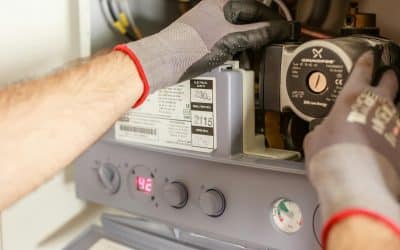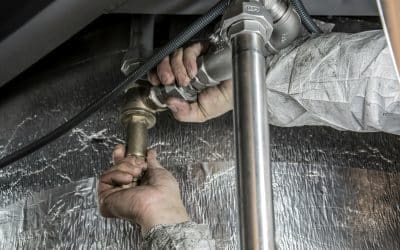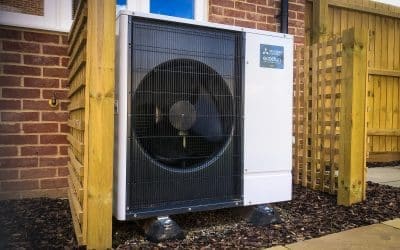Whilst the size of a biomass boiler isn’t everything when it comes to choosing one for your home, the question “what’s the right boiler size?” does come into play when replacing it.
This is primarily because a lot of research and thinking goes into determining your hot water requirements.
For the record, the size of your boiler mainly determines its heat output rating and not its actual physical dimensions. Put simply, the heat output rating is the capacity that your renewable heating system can offer. What’s more, the higher the rating, the more suitable the unit for your property.
Defining the right boiler size, of course, might not be as easy as it sounds since everyone has a different set of requirements.
Having said that, with some basic information and a boiler size calculator, you can surely figure out the right heating system with the potential to evenly heat your home.
At JL Phillips, we’ve put together this comprehensive boiler size guide to help you choose the right option.
Let’s dive in!
Choosing a Boiler Size – Why It Is Important
The new replacement heating system you choose needs to ensure your property is nice and warm while also keeping your electricity bills low – after all, none of us like paying more than necessary on our energy consumption.
This is where the size of your boiler plays a crucial role and you need to get it right.
To do that, firstly you need to determine its heat output rating (usually measured in kW [kilowatts]) and ensure that it meets your home’s heating demands.
If the rating is too low then your system won’t heat your home as you’d want it to. In short, you’ll end up feeling cold and miserable all the time. On the other hand, if the rating is too high, you’ll simply waste fuel and burn a hole in your pocket.
To find out more about why getting the boiler size right is important for your property, click here!
Boiler Size Calculator – Things to Consider
When it comes to choosing the ideal boiler size, there are certain important things that you need to consider.
- The type of boiler being used.
- The total number of radiators installed in your home
- The total number of bedrooms and bathrooms in the property
- The total number of people living in your home
Once you have figured out the answers to these questions, simply add the numbers in the boiler size calculator and identify the perfect size for your heating system.
For professional assistance in determining the right boiler size, you can get in touch with the heating experts at JL Phillips today.
Our Boiler Size Guide – Tips to Get the Sizing Right
At JL Phillips, we understand that determining the ideal size for a boiler isn’t everyone’s idea of a night in. That said, here we’ve put together a couple of tips to help you save time while also getting the sizing right.
Find Out the Size of Your Existing Boiler
The best place to start is by identifying the size of your existing boiler.
However, do not assume that this is it because you’ll also have to consider other changes too.
For instance, you could’ve added extra bathrooms, you could’ve had children, your hot water needs might have changed or perhaps you’re planning to extend your home in the future – all these things are crucial and you cannot afford to miss out on these changes.
Moreover, if you find that you’re constantly running out of heat and hot water with your current system, then you need to get it replaced with a bigger option. The same goes for boilers that are over 8 years old, as they may lack efficiency.
Read our blog to learn more about how you can maintain your biomass boiler and improve its efficiency.
Check Your Mains Flow Rate
We understand that regular boilers receive their water supply from a separate storage tank whereas system and combi boilers get it directly from your mains.
Now, if you’re planning to replace your old boiler with a system or combi one, then its size would differ based on the pressure/flow rate of water supplied from your mains.
It is, therefore, vital that you go for a heating unit that’s big enough to heat the amount of water passing through it.
In order to check the flow rate of your mains, all you need is a bucket and measurement scale. Simply run the water for around 60 seconds and then measure the amount collected in litres. The more the water, the faster the flow rate is and the harder your boiler needs to work. What’s more, the harder the effort, the higher the output.
If you don’t want to measure the flow rate, you could ask an experienced heating installer to do it for you.
Contact JL Phillips for Professional Assistance With Boiler Sizing
In order to get a precise idea about the right boiler size for your property, we would recommend that you seek assistance from an experienced heating installer like ourselves.
You could either give us a ring on 01636 642790 or simply fill out our quick quote form letting us know a bit more about your system.





